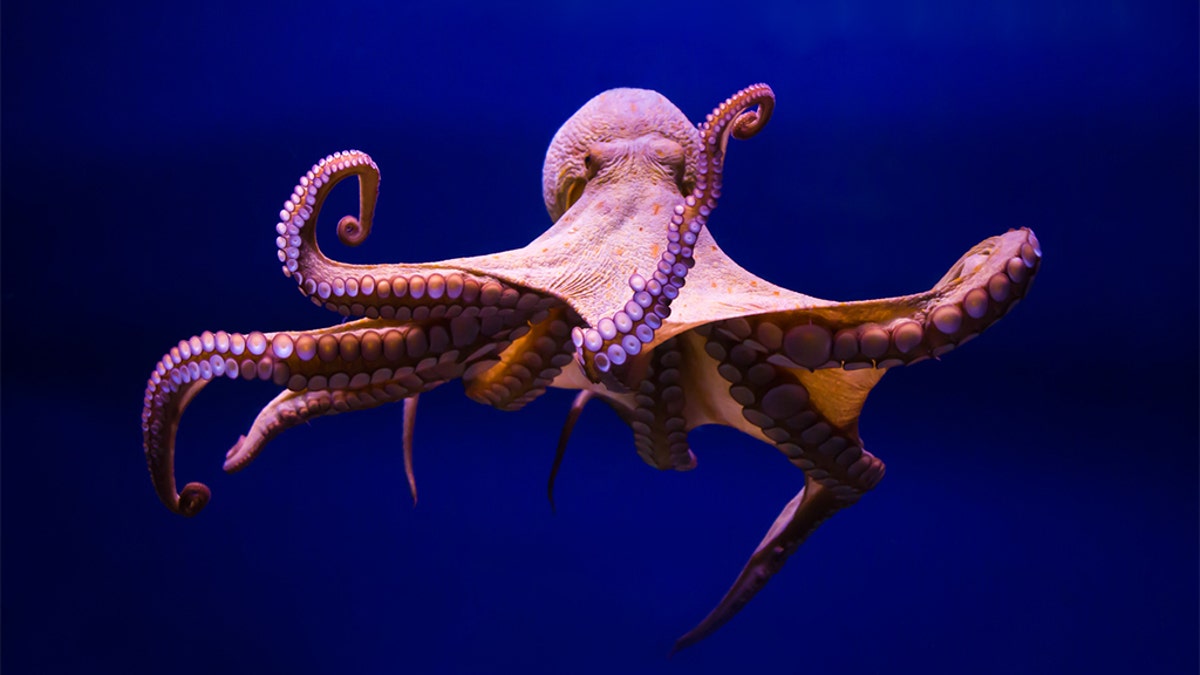
An official at the aquarium said there were "babies everywhere" after they hatched. (iStock)
When Octavius, a female common octopus at the University of Georgia’s Marine Education Center and Aquarium, went into hiding for roughly a month, officials at the aquatic center were baffled.
Normally a present creature, Octavius would greet visitors by sticking her tentacles on the inside of her tank. But in recent weeks, the sea animal — formally known as an Octopus vulgaris — spent more time hiding in a rock cave inside her tank, the Savannah Morning News reported.
Early last week, officials finally figured out why: Octavius was pregnant and eventually laid her eggs, which hatched into “tens of thousands” of baby octopuses, according to the newspaper.
“I noticed this cloud of moving dots and I realized, ‘Oh my God, she had babies. There are babies. There are babies everywhere,’” Devin Dumont, the curator at the aquarium, told the Savannah Morning News.
“I immediately started scooping them out and putting them in buckets and there were just buckets and buckets and buckets full of tiny octopi,” Dumont, who discovered the octopus's secret while cleaning her tank, added.
Female common octopuses can store a male octopus’ sperm for weeks before the eggs are fertilized and eventually laid. When the female is ready, it will "become restless and search for a sheltered place where they can lay and brood the eggs without disturbance," the University of Michigan's Museum of Zoology explains online.
"Fertilization takes place in the oviductal glands as the mature eggs pass through them on their way out of the oviducts," the museum continued, adding these creatures can lay up to 500,000 eggs.
Octavius was likely pregnant when she came to the aquarium from the South Carolina Aquarium in Charleston in August, according to the newspaper, though officials weren’t aware of this at the time.
The Savannah Morning News reported some of the babies — which are hard to see without a microscope — were released into the nearby Skidaway River while others are being kept in nursery tanks at the aquarium, which is a part of the university's Marine Extension and Georgia Sea Grant.
Sadly, Octavius will likely die now that she’s laid the eggs and they've hatched.
“The mother will protect the eggs in her den and waft or aerate or fluff them. After they’re all done hatching out she dies shortly after. She gives the last part of her life to her kids to protect them,” Dumont told the publication.
Devin Dumont was not immediately available for comment when contacted by Fox News on Thursday.








































